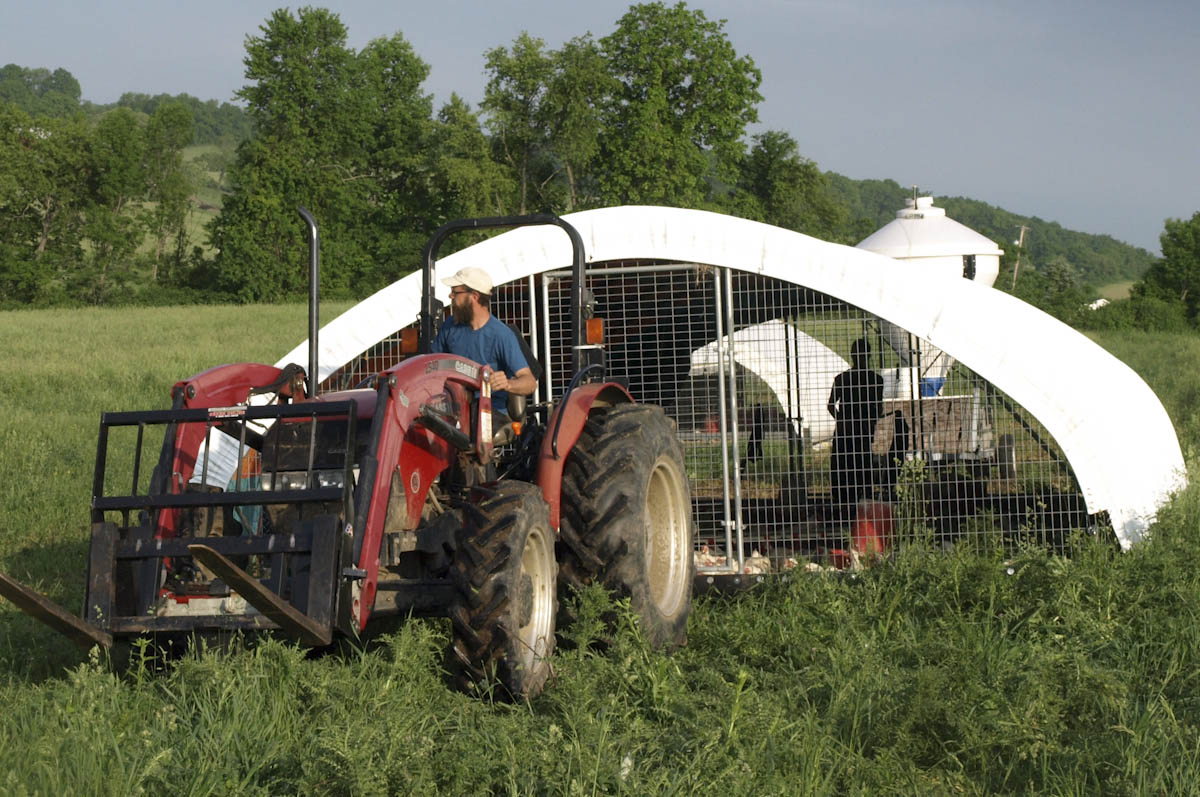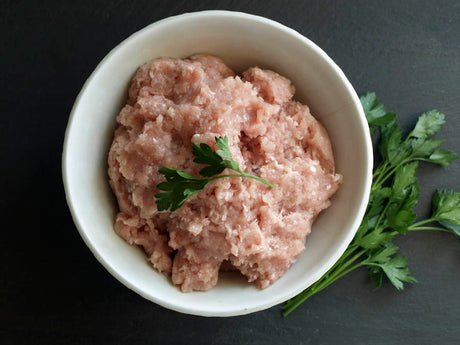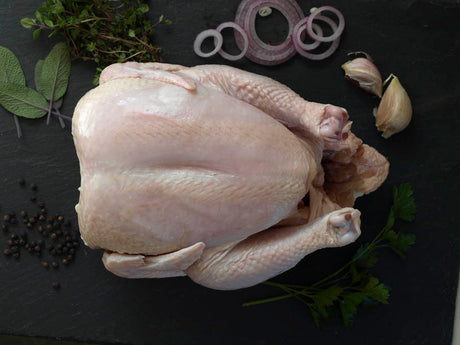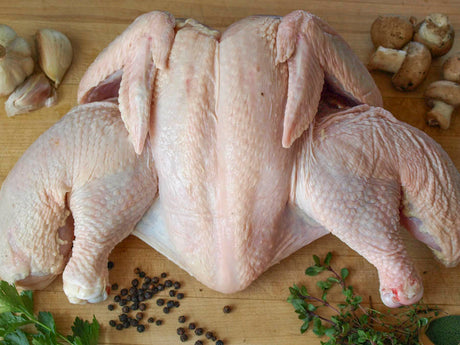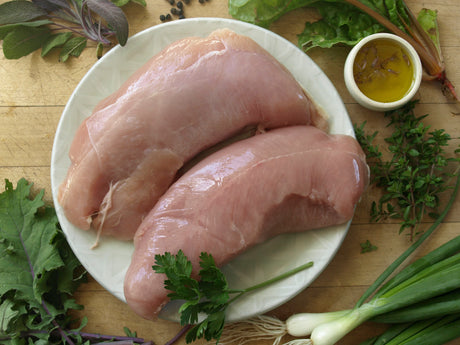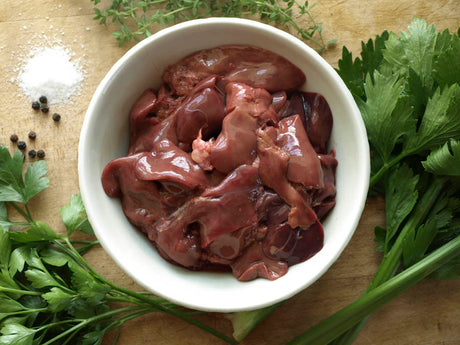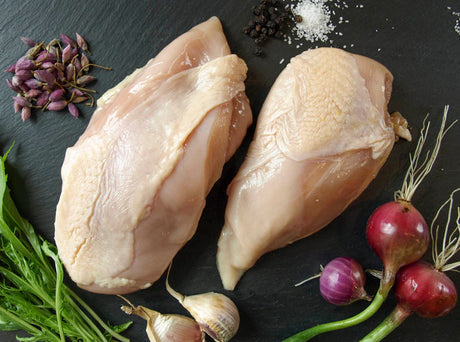Truly Pastured Chicken
View all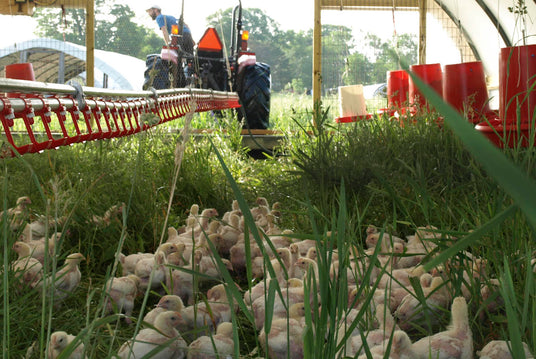
Better for the Land
Just like any other type of livestock, chickens benefit from fresh grass. But the land also benefits from this sort of management. The interaction between chickens and grass is a bit different than that of cows. Unlike cows, chickens don’t graze. They will snap up plenty of grass and clover, but they also scratch in the dirt for bugs and to make divots to lie in, peck at roots, and do whatever else catches their eye. This is harder on a piece of pasture than what cows and sheep do, though it is not so impactful as the rooting of pigs.
But the chickens also leave extra fertility in the form of their manure, which fuels incredible regrowth. A few weeks after the chickens have moved on, the pasture comes back thicker and greener than ever. The process of raising chickens on pasture naturally fertilizes as it goes. I don’t envy the work Dave and Rachel put into raising chickens, but I do envy what it does for the quality of their grass.

